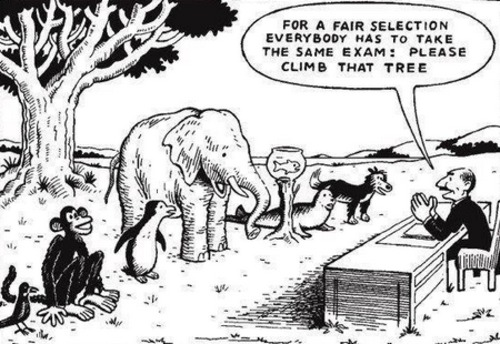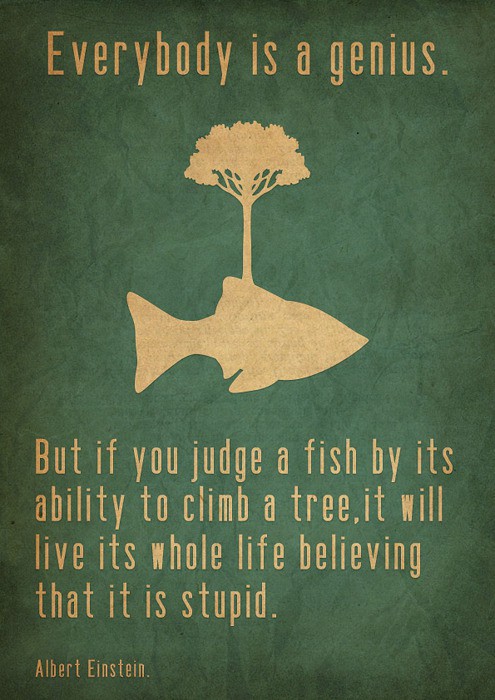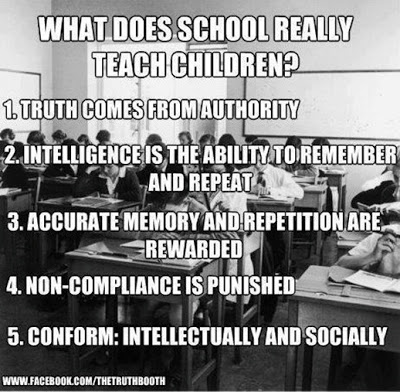
Has American culture cornered artists and healers into identifying as “disabled”? Is a diagnosis and the benefits that come with it one of the best strategies for being funded? Is a disability manifestation of a need for money and time as an artist or healer?
I find myself asking these questions because, let’s face it, only the most business-savvy artists and healers can get by on their work and gifts alone. That’s why many of them choose, consciously or unconsciously, to accept a disability diagnosis. Being sick seems the only socially acceptable excuse, especially as a young person who is not yet established, for living one’s life as an artist or healer. While some can play the game, compromise, and fit their art/gifts into corporate America, many cannot and I’d venture to guess that’s why we’re losing some of the most valuable members of society to illness. Now that “mental illness” is diagnosed so readily and often arbitrarily based on who has the prescription pad (if I had one I’d diagnose almost all psychiatrists), being abled or disabled is clearly a matter of perspective. This is a controversial way of framing disability, I am aware, but please bear with me as I continue to explain why ability and disability are culturally defined and far from easily determined.
Let’s start with the question of value, which I believe is an important place to start when discussing mental health (or anything for that matter). Do we want a world that values what is essential to us? Or will we continue to play along with the idea that warfare and patriarchal politics, medicine and education are working for us? You may say “I’m not playing along with those notions,” but if you believe in mental illness, you actually are, without even realizing it.
If there were funding for arts would “ability” suddenly spike and disability fall? The only problem would be a simultaneous fall in drug company profits, so let’s not talk about that.
When I hear people talk about disability rights and access, I have mixed feelings. On one hand, I’m deeply relieved that being differently-abled can be spoken of. I certainly don’t function highly as a cog in the American machine and if I were told I had to I would become quickly disabled. Yet with the paradigm shift of diverse-ability, I believe no one is disabled, at least not as a primary identity. Dis-abled means lacking in abilities and we all have abilities (as well as things we cannot do, of course). Moreover, we all have exactly the abilities we need to fulfill our unique life purpose.
People who are considered the highest functioning in American culture such as politicians, lawyers, medical doctors (including psychiatrists), major league sport players, etc., all lack certain abilities that I possess (and, of course, vice-versa). Are their abilities actually the real ones and mine “soft,” surreal, abstract, inaccessible and useless? With due humility, I must say no. I must defend that my abilities and yours, and all of ours, are either of equal, greater or immeasurable merit and value.
Is imagination a soft skill and major league baseball a hard human need? Is love useless and war necessary? Is beauty an indulgence and and punishment a requirement for the survival of our species? Is mental expansion woo woo and corrupt data funded by pharmaceutical companies the science that is saving our lives? Is peace extravagant but complex, abstract computer simulations sophisticated and worthy of funding?
It all comes down to worth and who is determining worth and who has been determining it for as long as we can remember. In order to redefine health, we must redefine worth. Are you sure the “abled” are able to accomplish what you value? Are you sure the “disabled” aren’t more able to heal the world?
Since there is quite a bit more funding in America for those diagnosed disabled than for those who call themselves artists and healers, we need to look at our value system. Of course it is important to put value on supporting those who are sick, injured or otherwise suffering. Many of us seem to agree on that as a basic premise, but have we ever asked ourselves why this is a value we share? The easy answer is, out of sympathy, empathy and compassion for our brothers and sisters. But is that the only answer?
I’d like to propose a balancing addition to that answer, which is healthy self-interest and concern for the evolution of our species. To become disabled is to-at least temporarily-take a break from business as usual. Some religions and traditions consider illness or disability a blessing and an opportunity for healing. True healing is not only healing of ones own body and mind, but healing of the interconnected web of humanity, healing of how we relate with one another.
So I venture to guess that the underlying motive in supporting those with disabilities that render them “less useful” in current culture is to pave the way for progress. And if it isn’t it should be. Charity alone, without believing in the potential of those receiving the charity, is useless. We must be giving “handouts” because we believe in the abilities of those receiving them. We believe they do or will have something to offer and it is worth helping them stay alive. If this fundamental belief isn’t recognized, charity can become an ego boosting mechanism of the “abled,” who are projecting their own insecurities about their ever so important corporate and business savvy abilities onto those with abilities they don’t understand.
Ironically these overlooked abilities are necessary if we are to survive (and thrive) as humanity.
When I was 21 I took a year off from my expensive liberal arts college to enter the mental health system against my will. Being on psych drugs (up to 7 at a a time) disabled me by almost all possible conventional standards. I was a classic case of dysfunctionality, unable to walk, read, communicate or think clearly. (Ironically some of my best poetry and songs came to me at that time). It was at this time that my mom applied for Social Security disability income for me, incumbent upon the fact that I was without a doubt “clinically” disabled. I started to receive payments of around $700 per month, plus free health insurance, which covered therapy (until I quit) and doctors’ visits, and enabled me to live without receiving money from my parents after awhile.
I slowly withdrew from the drug cocktail and, at about the same pace, regained a lot of abilities. In a few years I was writing and self-publishing books, teaching yoga, fund raising, dancing, hiking, traveling around the country presenting at conferences, doing childcare, singing, acting in plays, entering into relatively healthy romantic relationships and friendships, and making side money equal to and then greater than the amount I was receiving from Social Security. At what point was I no longer “disabled?” Since the only disability that seemed real to me was that caused by the “medicine” doctors gave me, I had a conundrum. It was important to me not to identify as disabled, yet I was still the person I always have been: able to do some things very well, other things so-so and other things not at all. The SSI checks I received each month brought up feelings of embarrassment and secrecy, while at the same time substantially supported me to live my dreams, develop talents and hobbies, spend less hours working for money and still save a considerable amount, living a simple life.
I believe all artists, healers and teachers deserve these things. In fact I believe all people deserve this luxury. “Do what you love and the money will follow” became so true for me -yet I saw my amazing artist and healer friends who didn’t receive $700 extra per month struggling financially in ways I didn’t have to worry about. I was concerned about receiving this money, concerned it would limit me, but the main thing about it that limited me was asking myself if I deserved it.
Returning to the abled/disabled discussion, there were and are many many things I was and am unable to do. I have less strength and stamina for physical labor than most people I know. Yet I taught 5 yoga classes a week for awhile, some pretty vigorous. Being in nearly any kind of 9-5 office environment is not possible for me. I have extreme allergies that keep me from being in a variety of locations. If I’m not doing something I love, I get more tired more quickly than many others. I don’t have the ability to work with other people all day. I can’t work in a noisy environment much. Keeping to a schedule that isn’t entirely self-designed is almost impossible for me. I can’t work in environments that contain cigarette smoke. I have many dis-abilities.
I also write more than almost anyone I know and write things that move many people regularly. I am highly intuitive and tell people things about themselves and the world that are just the very things they need to hear to move forward with confidence in their purpose. I have a healing presence and many people feel calmed, eased, and inspired when they come to my classes, listen to be speak, or read my writing. I have many more great abilities, but rather than continue to toot my own horn, I’ll say I’m incredibly grateful to have had “disability” income. It enabled me to nurture and expand these abilities when I was young, impressionable, and didn’t have the confidence to share these offerings in ways that would have brought me abundant money for them directly.
About 4 years ago I decided to go off of SSI. I had a meeting at the Social Security office in San Francisco where I had just moved. The worker asked me if I’m still disabled and I said, “I don’t know.” I knew of my abilities and disabilities as mentioned above. I knew I have the kind of ability/disability scorecard that doesn’t always make it easy to live in this world financially. Yet, I wanted to be honest, and part of me was tired of living with this secret money. I decided to have faith in being honest.
That decision not only lost me my monthly check, but resulted in Social Security claiming I owed them $12,000 for saving more than $2,000 in my bank account. I’d had more than $2,000 in my bank account for nearly 10 years, but they had never noticed. My credit score went from almost 800 to under 600 over the next couple of years as I couldn’t afford to pay back the $12,000, or really anything between my San Francisco rents and my full time job relocating to Arizona (while I stayed in California).
I was not especially more abled or disabled. I did feel good about having come clean and it has been a struggle to not have that support. I haven’t had health insurance or travel money in several years, but life has given me incredible donation based alternative health resources and some good travel opportunities that were funded. I have had nights of tension, tears and fear about money. It has been harder to relate with the wealthy people in my family who don’t know what it’s like.
In the end, I feel some satisfaction in putting myself out into the world more, offering my gifts and having faith that the money and/or resources will follow. I would like to see a world that supports diverse-ability. I would like funding to go to artists, healers and other peacemakers so we can all identify as “able” and have the abundant resources we all deserve!
In the meantime, I accept and respect all people who receive SSI, as it is one of the few areas of funding provided by the government that generally does more good than harm, I believe, giving those of us with unique abilities resources to stay alive. I still hope for a way to offer this money and more to people, without requiring them to identify with what they can’t do.



تریدرهای حرفهای میدانند که محدودیت تعداد اندیکاتور و تبلیغات مزاحم در نسخه رایگان تریدینگ ویو چقدر کلافهکننده است. برای دسترسی به تمام امکانات مثل ریپلای بار و آلارمهای نامحدود، نیاز به اکانت پرمیوم دارید. میتوانید برای خرید اکانت تریدینگ ویو اورجینال از خدمات شوپی استفاده کنید که اکانتهای قانونی (اسنشیال، پلاس و پرمیوم) را با ضمانت کامل و روی ایمیل شخصی شما فعال میکند.
کاربران زیادی بعد از چند تراکنش متوجه میشوند که حسابشان لیمیت شده چون مدارک احراز آنها واقعی نبوده است. شوپی با سرویس احراز هویت دائمی صرافیهای رمزارز مدارک کاملاً قانونی و قابل بررسی ارائه میدهد تا حساب شما همیشه تأییدشده باقی بماند. خدمات بهصورت دستی و با دقت بالا انجام میشود تا ریسک صفر باشد.
اگر دنبال مدرک شناسایی معتبر از کشورهای مختلف باشید، گرافیسو بهترین گزینه است. با استفاده از سرویس آی دی کارت کشورهای مختلف میتونید مدرک واقعی با طراحی و جزئیات اصلی دریافت کنید. مدارک بهصورت اختصاصی و با اطلاعات شخصی شما ساخته میشن و از نظر ظاهری کاملاً با نسخه رسمی کشور مقصد یکی هستن. دقت گرافیسو در جزئیات واقعاً بینظیره.